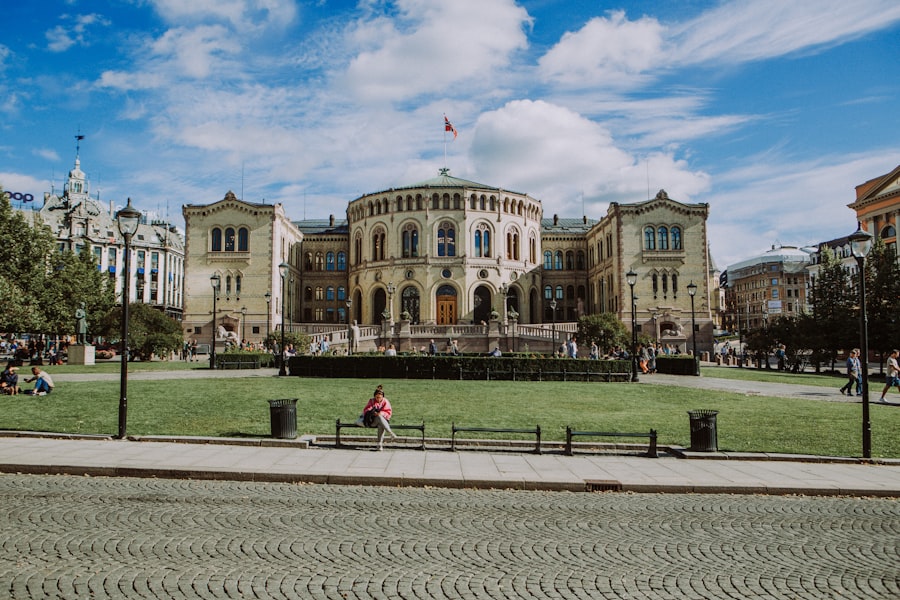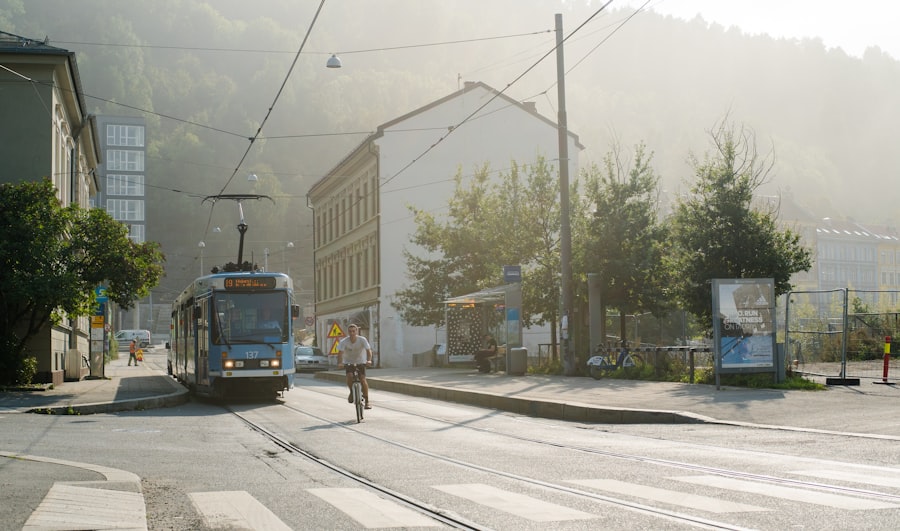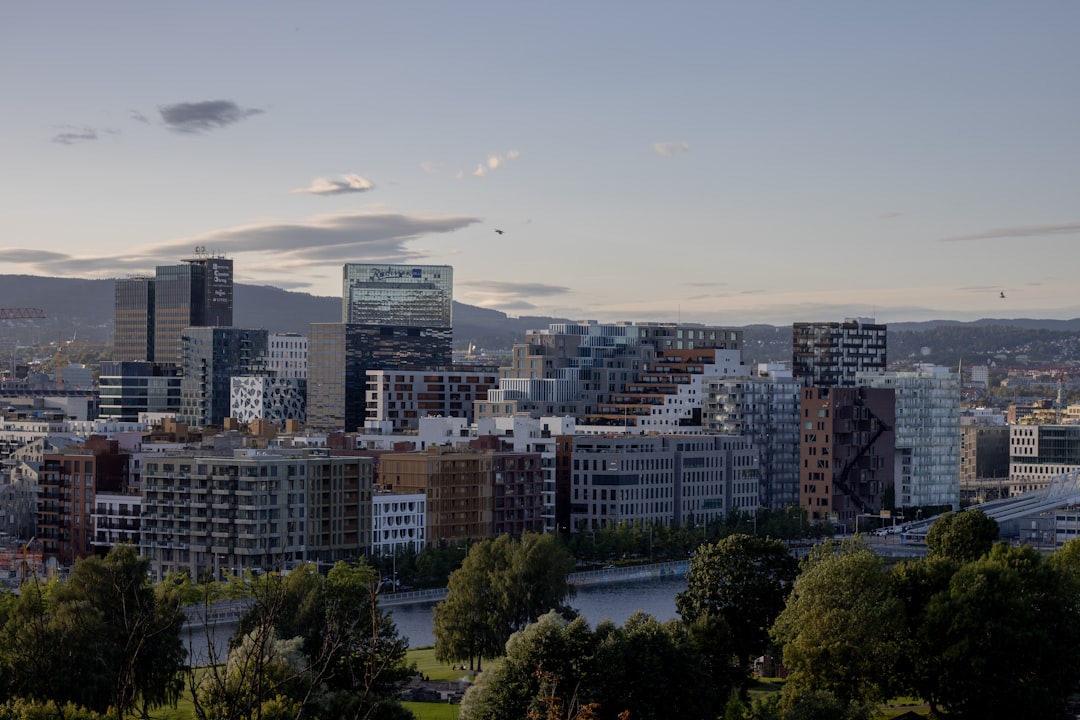When one embarks on a journey to Norway, the first encounter with the locals often sets the tone for the entire experience. Greetings in Norway are typically warm yet understated, reflecting the country’s cultural ethos. A simple “Hei” (Hello) or “God dag” (Good day) is commonly used, accompanied by a friendly smile.
Norwegians value authenticity, so it is essential to approach introductions with sincerity. When meeting someone for the first time, a firm handshake is customary, and maintaining eye contact is seen as a sign of respect and confidence. In a more informal setting, it is not uncommon for friends to greet each other with a hug or a light pat on the back.
However, it is crucial to gauge the comfort level of the other person, as personal boundaries can vary significantly. In Norway, people appreciate directness, so when introducing oneself, it is advisable to state your name clearly and perhaps share a little about your background. This openness fosters a sense of connection and lays the groundwork for meaningful conversations. Take the first step. Book a consultation with the Norway Relocation Group for your move to Norway.
Summary
- When greeting someone in the UK, a firm handshake and maintaining eye contact is the norm.
- British people value their personal space and are not very touchy-feely, so it’s best to avoid excessive physical contact.
- Punctuality is highly valued in British culture, so it’s important to be on time for appointments and meetings.
- When giving gifts in the UK, it’s the thought that counts, so a small token of appreciation is often appreciated.
- Table manners are important in British dining etiquette, such as waiting for everyone to be served before starting to eat and using cutlery properly.
Personal Space and Physical Contact
Norwegians are known for their appreciation of personal space, which is an integral aspect of their social interactions. Generally, individuals maintain a comfortable distance during conversations, especially with those they do not know well. This preference for personal space reflects a cultural inclination towards independence and self-reliance.
It is essential to respect this boundary; invading someone’s personal space can be perceived as intrusive or disrespectful. Physical contact in Norway is typically reserved for close friends and family members. While a handshake is standard during greetings, more intimate gestures such as hugs are usually reserved for those with whom one shares a close relationship.
It is advisable to observe the dynamics of the group you are interacting with to gauge what level of physical contact is appropriate. By being mindful of these nuances, one can navigate social situations with greater ease and comfort.
Punctuality and Time Management

In Norway, punctuality is not merely a courtesy; it is a cultural expectation. Arriving on time for appointments, meetings, or social gatherings is seen as a sign of respect for others’ time. Norwegians value efficiency and organisation, so being late can be perceived as inconsiderate or unprofessional.
If you find yourself running late, it is customary to inform the other party as soon as possible, demonstrating your respect for their time. Time management extends beyond mere punctuality; it also encompasses the way Norwegians structure their days. The work-life balance is highly regarded in Norwegian culture, with many individuals prioritising family time and leisure activities alongside their professional commitments.
This balance reflects a broader societal value that emphasises well-being and quality of life. Therefore, when engaging with Norwegians, it is beneficial to adopt a similar approach to time management, ensuring that both work and personal commitments are respected.
Gift Giving and Receiving
Gift giving in Norway is often associated with special occasions such as birthdays, holidays, or significant life events like weddings. When presenting a gift, it is customary to wrap it beautifully, as the presentation holds importance. However, the value of the gift itself is not as significant as the thought behind it; Norwegians appreciate gestures that reflect consideration and care.
When receiving a gift, it is polite to express gratitude immediately. A simple “Takk” (Thank you) suffices, but adding a few words about why you appreciate the gift can enhance the sentiment. It is also worth noting that gifts are typically opened in private rather than in front of the giver, as this practice allows for a more personal moment of appreciation.
Understanding these nuances can help foster goodwill and strengthen relationships within Norwegian social circles.
Table Manners and Dining Etiquette
Dining in Norway is often an intimate affair, characterised by good food and engaging conversation. When invited to someone’s home for dinner, it is customary to bring a small gift such as flowers or dessert as a token of appreciation for the host’s hospitality. Upon arrival, it is polite to greet everyone present before taking your seat at the table.
During meals, Norwegians adhere to certain table manners that reflect their cultural values. It is considered impolite to start eating before everyone has been served, so patience is key. Additionally, keeping your hands on the table (but not your elbows) while eating demonstrates good etiquette.
When finished with your meal, placing your cutlery parallel on your plate signals to the host that you are done eating. These small gestures contribute to a pleasant dining experience and showcase respect for both the food and those sharing the meal.
Communication and Conversation

Norwegian communication tends to be straightforward and direct, which can sometimes be misinterpreted as bluntness by those from more indirect cultures. Norwegians appreciate honesty and clarity in conversations; therefore, it is advisable to express your thoughts openly while remaining respectful. Small talk may not be as prevalent in Norwegian culture compared to other countries; instead, conversations often delve into deeper topics relatively quickly.
When engaging in conversation with Norwegians, it is essential to listen actively and show genuine interest in what others have to say. Asking open-ended questions can encourage dialogue and foster connections. Additionally, humour plays an important role in Norwegian communication; light-hearted banter can help break the ice and create a relaxed atmosphere.
By embracing these conversational norms, one can build rapport and enjoy meaningful interactions with locals.
Respect for Nature and the Environment
Norwegians have a profound respect for nature and the environment, which is deeply ingrained in their cultural identity. The country’s stunning landscapes—from fjords to mountains—are not only sources of national pride but also serve as reminders of the importance of environmental stewardship. This respect manifests in various ways, including sustainable practices in daily life and an emphasis on outdoor activities.
When visiting Norway, it is essential to adopt an environmentally conscious mindset. This includes adhering to local guidelines regarding waste disposal and recycling while also being mindful of wildlife and natural habitats during outdoor excursions. Engaging in activities such as hiking or skiing should be done with an awareness of preserving these beautiful landscapes for future generations.
By demonstrating respect for nature during your visit, you align yourself with Norwegian values and contribute positively to the environment.
Dress Code and Appearance
In Norway, personal appearance reflects an individual’s personality and style while also adhering to certain cultural norms. The dress code tends to be casual yet stylish; Norwegians favour practicality without sacrificing aesthetics. When attending social events or gatherings, it is advisable to dress smartly but comfortably—think well-fitted clothing that allows for ease of movement.
During outdoor activities or excursions, functional attire becomes paramount due to Norway’s varied climate conditions. Layering clothing is common practice; this allows individuals to adapt to changing weather while remaining comfortable throughout their adventures. Whether you are exploring urban areas or venturing into nature, being appropriately dressed not only enhances your experience but also demonstrates respect for local customs.
Social Drinking and Alcohol Etiquette
Alcohol consumption in Norway is often associated with social gatherings and celebrations; however, it comes with its own set of cultural norms. When attending events where alcohol is served, it is customary to wait until everyone has received their drink before raising a toast—a gesture that signifies unity among participants. The phrase “Skål” (Cheers) is commonly used during these moments.
It is important to note that while drinking can be part of socialising in Norway, moderation is highly valued. Excessive drinking may be frowned upon, particularly in professional settings or formal gatherings. Additionally, public intoxication is generally considered inappropriate; therefore, maintaining composure while enjoying alcoholic beverages reflects positively on one’s character.
By adhering to these social drinking norms, one can navigate Norwegian social scenes with ease.
Politeness and Courtesy
Politeness forms the backbone of Norwegian social interactions; individuals are expected to exhibit courtesy towards one another at all times. Simple gestures such as saying “Takk” (Thank you) or “Vær så snill” (Please) go a long way in fostering goodwill among locals. When engaging in conversations or asking for assistance, using polite language demonstrates respect for others’ time and efforts.
In addition to verbal politeness, non-verbal cues also play an essential role in conveying courtesy in Norwegian culture. Maintaining eye contact during conversations signifies attentiveness and sincerity while offering a warm smile can create an inviting atmosphere. By embodying these principles of politeness and courtesy, one can build positive relationships within Norwegian society.
Understanding Cultural Sensitivities and Traditions
Norway boasts a rich tapestry of cultural traditions that reflect its history and values. Understanding these sensitivities can enhance one’s experience while visiting the country. For instance, Norwegians take great pride in their national holidays such as Constitution Day on May 17th—a day filled with parades and celebrations that honour their democratic heritage.
Additionally, being aware of local customs surrounding traditional practices—such as folk music or regional festivals—can provide deeper insights into Norwegian culture. Engaging respectfully with these traditions demonstrates appreciation for the country’s heritage while fostering connections with locals who are eager to share their customs with visitors. As you immerse yourself in Norwegian culture through these various aspects of social etiquette and customs, consider enhancing your language skills at the NLS Norwegian Language School in Oslo.
The school offers comprehensive courses tailored for all levels—from beginners eager to learn basic phrases to advanced learners seeking fluency in conversation. With experienced instructors guiding you through immersive lessons that encompass both language and cultural nuances, you will gain invaluable insights into Norwegian society while developing essential communication skills. By participating in NLS courses, you will not only learn how to navigate social situations more effectively but also deepen your understanding of Norway’s rich cultural landscape—making your experience all the more rewarding during your stay in this beautiful country.
Learn more about the Norwegian classes at the NLS Norwegian Language School in Oslo

